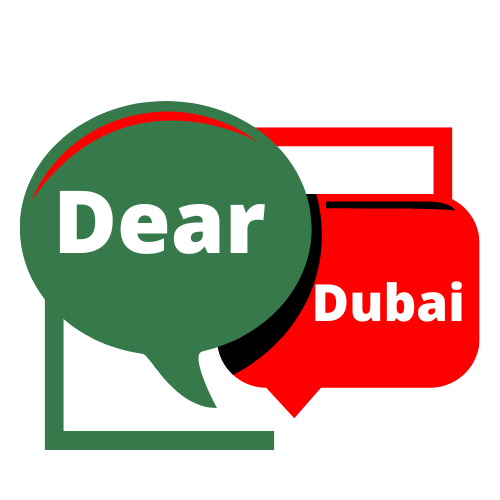Mobile App Development Dubai has experienced exponential growth over the past decade. As a global hub for innovation and technology, Dubai houses a burgeoning community of developers who are consistently setting high standards in mobile app development. A critical component of this excellence is optimizing apps for battery and performance efficiency. In this article, we’ll explore the strategies and practices employed by developers in Dubai to ensure that their mobile applications are not only functional but also efficient and sustainable.
Understanding the Importance of Battery and Performance Optimization
Before diving into specific optimization techniques, it’s essential to understand why battery and performance efficiency is paramount in today’s mobile-centric world.
- User Experience: A smooth and responsive app enhances user satisfaction, leading to higher retention rates.
- Device Constraints: Mobile devices have limited resources. Efficient apps ensure minimal strain on these resources, prolonging device lifespan.
- Competitive Advantage: In a saturated market, optimized apps stand out, giving developers and businesses an edge.
Given these reasons, Mobile App Development Dubai places a strong emphasis on creating apps that are both powerful and efficient.
Strategies Employed by Dubai Developers
Utilizing Efficient Coding Practices
At the heart of any app is its code. Dubai developers prioritize clean, efficient, and optimized coding to ensure minimal resource consumption.
Avoiding Memory Leaks: Regular code reviews and using tools like LeakCanary (for Android) help in identifying and rectifying memory leaks.
Efficient Algorithms: Choosing the right algorithms can drastically reduce CPU usage, leading to better battery performance.
Modular Coding: Breaking down code into modules allows for easier maintenance and optimization.
Leveraging Native Development Tools
While cross-platform tools offer convenience, native development often provides better optimization opportunities.
Android: Using Android Studio’s Profiler, developers can monitor CPU, memory, network, and energy usage, allowing for targeted optimizations.
iOS: Xcode’s Instruments offers similar profiling tools, enabling developers to identify performance bottlenecks.
By leveraging these tools, Mobile App Development Dubai ensures that apps are tailored to the specific nuances of each platform, optimizing performance.
Optimizing Graphics and Animations
High-quality graphics and animations can enhance user experience but can also be resource-intensive.
Reducing Frame Rates: Limiting animations to essential areas and reducing frame rates where possible conserves battery.
Compressing Images: Using formats like WebP (for Android) or HEIF (for iOS) ensures high-quality images with reduced file sizes.
Lazy Loading: Loading images and content only when needed prevents unnecessary resource consumption.
Managing Network Calls Efficiently
Frequent network requests can drain the battery and affect performance.
Batching Requests: Grouping multiple requests reduces the number of network calls.
Caching Data: Storing frequently accessed data locally minimizes network usage.
Using Efficient Protocols: Opting for HTTP/2 or gRPC can enhance performance and reduce overhead.
Implementing Background Task Management
Background tasks, if not managed correctly, can be significant battery drainers.
Scheduling Tasks: Using platform-specific scheduling tools ensures that background tasks run during optimal times.
Avoiding Wake Locks: Preventing the device from entering sleep mode unnecessarily conserves the battery.
Monitoring Background Activity: Regularly reviewing and optimizing background processes ensures minimal resource usage.
Adopting Progressive Web App (PWA) Principles
PWAs combine the best of web and native apps, offering performance benefits.
Offline Capabilities: Allowing apps to function offline reduces unnecessary network calls.
Responsive Design: Ensuring that apps adapt to various screen sizes and resolutions enhances performance.
Service Workers: These scripts run in the background, managing caching and network requests efficiently.
Many Mobile App Development Dubai firms are integrating PWA principles to enhance app performance and battery efficiency.

Continuous Testing and Monitoring
Optimization is an ongoing process. Regular testing ensures that apps remain efficient.
Automated Testing: Tools like Appium and XCTest automate performance testing.
User Feedback: Gathering user feedback helps in identifying real-world performance issues.
Analytics: Integrating analytics tools provides insights into app performance, guiding further optimizations.
Case Studies: Dubai’s Excellence in App Optimization
To illustrate the effectiveness of these strategies, let’s look at some real-world examples from Dubai’s app development scene.
Careem
Careem, the Middle East’s leading ride-hailing app, has its roots in Dubai. The app’s developers have prioritized performance optimization to handle vast user traffic.
Efficient Mapping: By optimizing map rendering and reducing unnecessary data loads, the app ensures minimal battery consumption.
Adaptive UI: The app adjusts its interface based on device capabilities, ensuring smooth performance across various devices.
DubaiNow
DubaiNow is a comprehensive app offering over 115 city services.
Modular Architecture: The app’s modular design allows users to access only the services they need, reducing resource consumption.
Optimized Background Syncing: By scheduling data syncing during periods of low device activity, the app conserves battery.
These case studies highlight the commitment of Mobile App Development Dubai to producing efficient and user-friendly applications.
The Role of Emerging Technologies
Dubai’s developers are also at the forefront of integrating emerging technologies to further enhance app performance.
Artificial Intelligence (AI) and Machine Learning (ML)
AI and ML can predict user behavior, allowing apps to pre-fetch data or adjust resource allocation dynamically.
Predictive Loading: Based on user habits, apps can load content in advance, ensuring a seamless experience without unnecessary resource use.
Adaptive Brightness and Themes: Adjusting app themes based on ambient light or time can conserve battery.
Edge Computing
By processing data closer to the source, edge computing reduces latency and network usage.
Local Data Processing: Tasks like image recognition can be handled on-device, minimizing network calls.
Enhanced Security: Processing sensitive data locally also improves security, a crucial aspect of modern app development.
Mobile App Development Dubai is actively exploring these technologies to push the boundaries of app performance and efficiency.
In the dynamic landscape of Mobile App Development Dubai, optimizing for battery and performance efficiency is not just a best practice but a necessity. By employing efficient coding, leveraging native tools, managing resources wisely, and integrating emerging technologies, Dubai’s developers are setting benchmarks in creating sustainable and high-performing mobile applications.
As the mobile ecosystem continues to evolve, so will the strategies and techniques for optimization. However, the core principles of prioritizing user experience, efficient resource management, and continuous improvement will remain at the heart of Dubai’s mobile app development scene.




